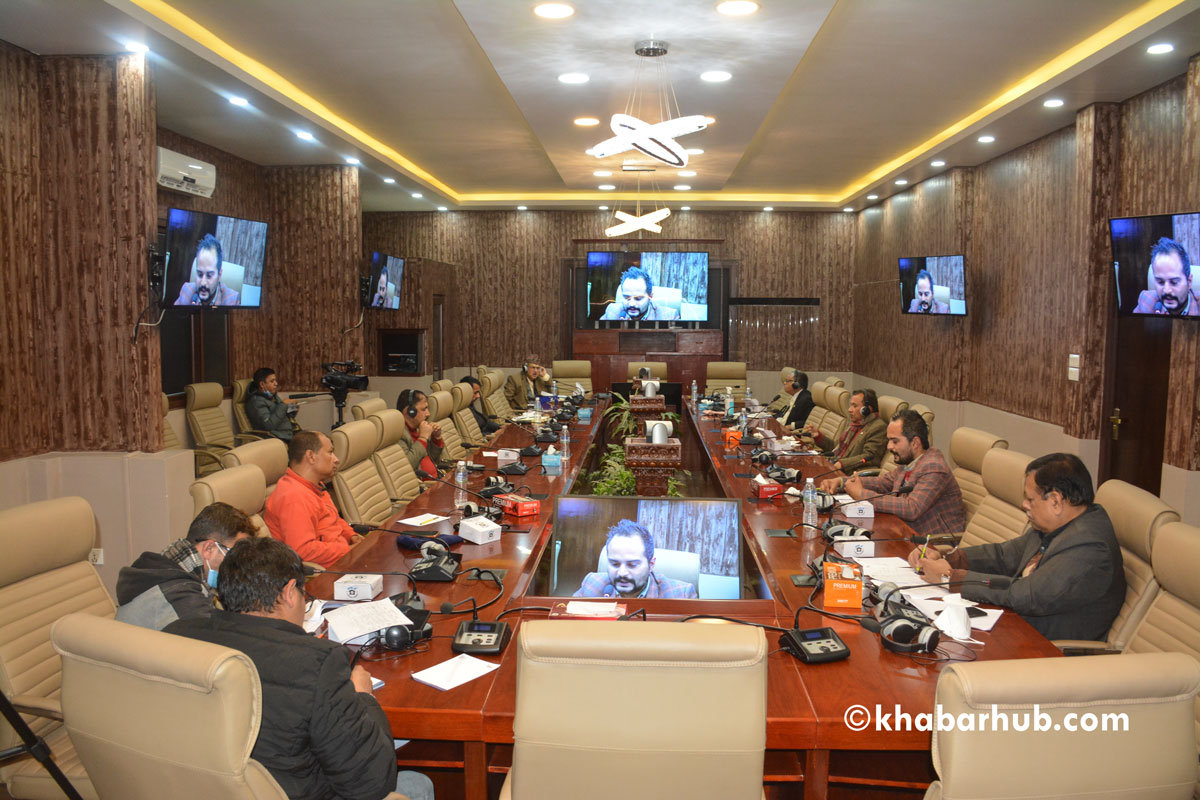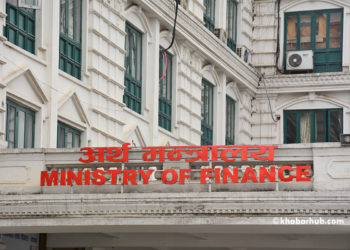KATHMANDU: Ratification of the Millennium Challenge Corporation (MCC) Nepal Compact will help boost Nepal’s economic growth besides increasing investment and reducing poverty, experts have said.
Taking part in the “Khabarhub Debate on MCC: Facts and Fictions” held at the Pavilion Hall in Durbar Marg, Kathmandu, on Sunday, intellectuals, analysts, and experts argued that the provision of getting MCC ratified from the parliament was to maintain transparency and make room for successful implementation of this infrastructure-focused development project.
According to them, this will also accelerate economic growth by increasing power supply and lowering transportation costs.
They were unanimous to say that the MCC has been made a means to prove one’s ‘patriotic’ image and gain public attention overshadowing the genuine voices disseminating the authentic and realistic information.
Stating that scandal-mongers, knowingly in most cases and somewhere unknowingly, have led the issue to the verge of collapse, they hoped that MCC would be ratified for the good of the nation.

“In fact, Nepal has applied for the grant to develop Nepal’s transmission line and road upgradation,” said Senior Advocate Prof. Dr. Gandhi Pandit, arguing that the country could even witness negative outcomes if Nepal failed to ratify the Compact.
He said that all the leaders of the Nepali Congress, CPN-UML, and Maoist Center should take ownership and should ratify the Compact at the earliest.
“The parliament should endorse the MCC Compact at any cost,” he said, adding, “Failure to ratify it will be unfortunate for Nepal and its people.” Gandhi also branded the protests against MCC as a “destructive mentality” to make it a ‘political agenda’.

Krishna Gyawali, former Secretary and a freelancer said MCC had come to Nepal for reducing poverty by providing grants in the country’s priority sector.
“MCC has no time overruns or project over-cost,” Gyawali argued, adding, the project must complete within 5 years after the implementation of the Compact.
Gyawali dubbed rumors on MCC as baseless and people spreading negative comments were to be ‘viral’ on social media, saying that valid criticism should be on a ‘content’ base.
The project must be ratified by the parliament in accordance with Nepal’s law. “We must believe in diplomacy, otherwise, Nepal’s trust will deteriorate,” he said.

Political Analyst Arun Subedi criticized “so-called intellectuals” for making shoddy comments and extreme views about MCC.
“There is an overflow of the negative comments on MCC, so it becomes hard now to justify MCC is for the country’s development,” he said. He said the government should receive MCC from a developmental angle.

Meanwhile, Saurav Raj Pant, Chief Executive Officer at National Study Center, opined that the grant and foreign loan and aid from now onwards should be ratified in parliament for a broad concept. ‘Domestic politics’ play a major role in protests, and disinformation on MCC has disillusioned the Nepali people.
“We just have to move forward by maintaining power with the powerful stakeholder,” Pant said, adding, “There is no importance to be reactionary.”

Foreign affairs expert Satya Narayan Shah said anti-MCC protests are being held due to ‘fair psychology’. “They are protesting having a fair psychology that if the country developed, then the foreign aid and grant in the future will not come in the country”, he asserted. The protest on the MCC is time wasted and energy wasted, he added.
“If our leaders are not engaged in ‘cheap popularity, it should be ratified and implemented soon,”, he said.

Gyan Mitra questioned that ‘Who are the players who are protesting MCC for cheap popularity? Who is supporting them? Whose hands are behind misinformation and protests on MCC?’

Rabindra Pandit Chhetri, Former Investigation Director (equivalent to Deputy Inspector General) at National Information Department said that everyone was clear on the effects of not ratifying the Compact in parliament in the future.
“We must believe the government,” he said, adding, “It is unethical to protest the government. Political parties have made ‘MCC a hot cake’ to move forward their ‘political agenda”.
“MCC is in Nepal’s favor,” he added, “Nepalis should not be divided on ‘for’ and ‘against’ on MCC,” he asserted.

Advocate Kiran Poudel said that there has been an exaggeration regarding MCC, which he claimed would be harmful to the country. MCC should be looked at from a development perspective.
The project should be completed within five years, which is good for the nation. “Is there any national pride project that has been completed on stimulated time?” he questioned.
Projects like Fast Track, Arun III have overburdened the country in terms of time and money. If projects constructed with foreign loans extend deadlines and the cost tends to overrun, the country will go ‘bankrupt’.









Comment